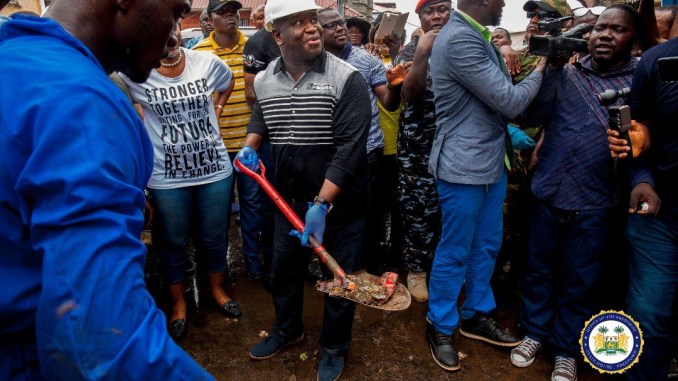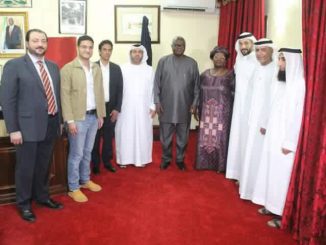
The national cleaning exercise imposed by President Maada Bio when he came to power in 2018 is fraught with rampant corruption, as exposed by the Auditor General’s 2019 Report .
Though President Bio had a good intention for imposing the cleaning exercise, he could not however stop it from becoming another flashpoint of the massive corruption his government has been accused of by the Auditor General’s Report.
READ THE REPORT BELOW BY THE AUDIT DEPARTMENT
——————————————————–
NATIONAL CLEANING EXERCISE
In a presidential press release of 9th April 2018, the National Cleaning Day was declared and
scheduled for the 1st Saturday of each month, between 7 am – 12 noon. The 1st National Cleaning
Day scheduled by the Ministry of Health and Sanitation was Saturday, 5th May, 2018.
The cleaning exercise, as proclaimed by government, is to help minimise the risk of contagious
diseases prone to unhealthy environment that are major causes of different health related cases in our
society; ranging from cholera, malaria, typhoid, etc.
Every month, the Government of Sierra Leone through the Ministry of Finance disburse funds to
Local Councils nationwide for the National Cleaning Day exercise. In addition, the Ministry also
disbursed additional funds to the Ministry of Local Government and Rural Development to facilitate
the operations of the National Coordinating Committee for the cleaning exercise.
345
Funds allocated to councils were for the purchase of chemicals, protective gears and tools, provide
incentives for the youth, hire of machinery (trucks, bulldozer, front liner, excavator, fire engine,
transporting bin. etc.) as well as for supervision and coordination of the activities during the exercise.
In as much as there are successful stories around the cleaning exercise since its initiation, we
identified during our review of selected councils that:
(i) Cleaning tools and protective gears were inadequate.
(ii) It was not clear which youth group was entitled to incentive payment. We interviewed
some youth groups on selected cleaning days, and there was no evidence of incentive
payments to the youth groups on the day of the cleaning, even though the group
participated regularly
(iii) We also noted, on average, that national cleaning funds were not remitted on time into the
council’s accounts.
(iv) There was improper waste disposal due to lack of ideal dumpsites
(v) Some companies or business entities operating within the locality of the councils provided
trucks to collect garbage to identified dumpsites. However, we noted that there was no
proper coordination between the councils and the business entities.
(vi) Provisions on the use of public funds as stipulated in the Public Financial Management
(PFM) Rules and Regulations, and the Public Procurement Laws and Regulations, were in
most instances not observed in the disbursement of funds allocated for the cleaning
exercises. There were instances where items were procured without following the
provisions in the procurement laws and regulations, withholding taxes not deducted, store
items not taken on ledger and some payments without supporting documentation.



